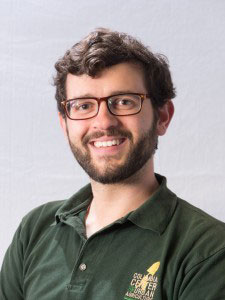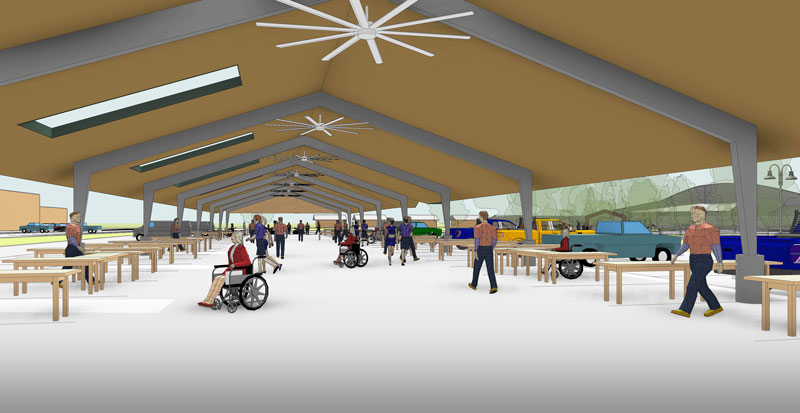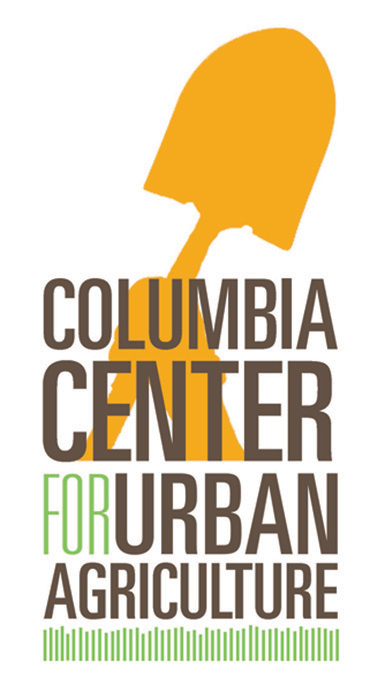Featured Client: Columbia Center for Urban Agriculture (CCUA) & Their Build This Town Campaign
Introducing CCUA and the Campaign
Columbia Center for Urban Agriculture works to enhance our community’s health by connecting people to agriculture and the land through hands-on learning opportunities from seed to plate. Their 1.3-acre Urban Farm grows thousands of pounds of fresh food for local food pantries and educates thousands of children and adults every year. Founded in 2009, CCUA believes cooking and gardening skills have been slowly lost over the last couple of generations, and they want to ensure individuals still have the opportunity to learn them and use it to feed their families. CCUA helps people grow and cook food at their homes, at local schools, and other community sites. Billy Polansky serves as Executive Director of CCUA, leading the day-to-day operations.

At Igniting Business, we have had the pleasure to serve CCUA in their IT needs. According to Billy, “We tried having our own IT staff and it was difficult. It is a completely different skillset and I could not provide those staff with the support they needed to be successful. Outsourcing our IT needs to Igniting Business was a good move for a small organization like ours.”
CCUA has recently launched a fundraising campaign, Build This Town, with the mission “to build a beloved Agriculture Park, creating a healthier, more vibrant community.” The Build This Town project is a public-private partnership between Columbia Parks & Recreation, Columbia Center for Urban Agriculture, Columbia Farmers Market, and Sustainable Farms & Communities whereby funds will be used to build an Agriculture Park in central Columbia.
Chatting with Billy Polansky

{slider title="What type of initiatives will be provided as a part of this Agriculture Park?" class="green"}
CCUA will manage a 3-acre farm and orchard on the site which will grow food for local food pantries. An outdoor classroom will also be built to be used as a part of CCUA’s teaching curriculum. There will be a large open-air pavilion that will be used by the Columbia Farmers Market, allowing the market to be on site year-round regardless of the weather. Additionally, there will be a recreation trail and various community spaces where neighbors can come to walk their dog or have picnic.
{slider title="How is CCUA tied to the Columbia Farmers Market (CFM)? What does this partnership look like?" class="grey"}
CCUA already works closely with the Columbia Farmers Market. Every week our staff organizes educational activities for children at the market. When the Agriculture Park is built, CCUA and CFM will be the two main tenants at the site. Together our work will connect people to agriculture and good food. CCUA’s hands-on experiences and live demonstrations will complement the authentic interactions between shoppers and farmers. This park will help make connections between mid-Missouri’s urban and rural communities.
{slider title="What will the new interactive urban farm entail?" class="green"}
There is a whole spectrum of ways that the farm will be interactive. Our food production areas will be used to train beginning farmers and gardeners on fruit and vegetable growing techniques. Throughout the food production areas will be the park’s recreation trails, benches, and interpretive signs. The park will be open to the public during normal park hours, so anyone can come and take a walk through the carrots and apples. The outdoor classroom at the park will host groups participating in CCUA’s PLANTS program, which offers hands-on learning experiences to groups of children. Kids will be able to get their hands dirty, learn how food grows, harvest, and taste!
{slider title="How will the Columbia Farmers Market be transformed through this new expansion?" class="grey"}
The Columbia Farmers Market has sold at the existing location since 1980, back when the site was still the Boone County Fairgrounds. In the mid 90’s, the fairgrounds moved north of town and all of the buildings were demolished. Since then, farmers have been selling under pop-up tents in the parking lot. Selling under these Adobe Expresss tents is less than ideal, mostly because the tents don’t cover the customers, only the food! Thus, when it is rainy or hot, the customers have no protection from the elements, resulting in unreliable sales for the farmers and an unreliable market for the customers. The new building will be covered to protect farmers and customers from the elements. In the winter, fabric sides will pull down to extend the market year-round. There is fresh vegetables, breads, meats, and cheese available year-round already, but CFM has to relocate to Parkade Center during the winter months. However, when you compare customer counts of the last outdoor market and the first indoor market, customer counts drop in half. The new building will provide year-round consistency for the market, its farmers, and its customers. Also, the market building will be larger than the current space, making room for more farmers and more customers
{slider title="In what way will Columbia’s access to healthy and fresh fruits and vegetables be impacted by this development?" class="green"}
This site will encourage the growing, purchasing, and consumption of fresh fruits and vegetables. The educational opportunities provided by CCUA will encourage home gardening, making fruits and vegetables more available to people in the community. Columbia Farmers Market accepts cash, check, credit cards, and SNAP (food stamp) benefits. The market’s “Oasis” can provide tokens to people wishing to use a check, credit card, or SNAP benefits. Additionally, Sustainable Farms & Communities, one of our partners, operates the Access to Healthy Foods Program. This program provides a match to families using SNAP. For example, a family who swipes their SNAP card for $25 will receive $50 in tokens. This grant-funded program helps families get more fresh food on the dinner table and puts more money in the pockets of our local farmers. A larger location with a higher profile will attract and serve more people seeking out fresh fruits and veggies!
{slider title="Why will the new location be a great new destination to spend time in Columbia?" class="grey"}
Stephens Lake Park is one of the gems of our park system. Located east of downtown, its central location serves many people. It is hard to believe that this park was only built in 2000. We anticipate that the Agriculture Park will have a similar impact on the residential neighborhoods west of downtown. The park will naturally complement its neighbors, the ARC and Shelter Gardens, making a place where neighbors and families can come together. This park will be a destination for people who live in town, but also for Columbia’s visitors. This park and the partnerships behind it represent the uniqueness of Columbia and the innovative nature of our town. Travelers are looking for unique “local flavor” when they visit a town. This Agriculture Park will be a local food destination for our town’s visitors.
{slider title="The new facility mentions a versatile community space. Can you provide us a few examples of what this space could be used for in the future?" class="green"}
When the farmers market building is not in use, Parks & Recreation will have it available for rentals. Similar to how other parks buildings can be rented by private groups, this large open-air space will be available for company picnics, classic car shows, family reunions, etc. In a later phase, the site will have a 4,000-sq. ft. indoor multipurpose building, similar to Reichmann Pavilion at Stephens Lake Park. This building will be available for weddings, meetings, and other activities at the park.
{slider title="How are funds provided for the new development?" class="grey"}
We have had great momentum in our fundraising campaign. In the last seven months, the campaign has raised $2.5 million with support from individuals, private businesses, local government, and granting organizations. The project has distinct phases. We’ve already raised all the funds for Phase One and we are working to achieve our Phase 2 goal. Ideally, we’d like to build Phases One and Two of the project together when we break ground this winter. We are continuing our fundraising for this project. We anticipate that the campaign will continue for two or three more years until we have the entire project funded. This community project is leveraging both public and private resources, which is the beauty of this public-private partnership. It is a project whose outcome is truly greater than the sum of its parts.
{slider title="How can individuals support CCUA and the Columbia Farmers market?" class="green"}
You can learn more about our organizations at our websites: ColumbiaUrbanAg.org and ColumbiaFarmersMarket.org. See us in person by coming to the CFM on a Saturday morning between 8 – noon at 1701 West Ash Street. The market sees around 3,000 customers weekly in the summer, it is a happening place! This fall CCUA will host our 8th Annual Harvest Hootenanny at our Urban Farm on Saturday, October 7th, it is a fun event with food, music, games, and a biergarten! The event is a good showcase of our farm and the work that we do.
{/sliders}
How can small businesses get involved with the Build This Town campaign?
Businesses can make a pledge of financial support to the campaign. Many businesses are stretching their pledges out over multiple years, which helps make a bigger fundraising splash without negatively impacting cash flow. While the campaign has had some large, generous gifts, they truly appreciate any contribution possible. CCUA has had some businesses sign up for a monthly $20 contribution, which is over $1,000 in a 4-year period. A number of naming opportunities are also available that will recognize donors once the park is built. Many of the business donors have allocated funds from their marketing budget to support the project. Everyone has a different ability to give, yet each gift is meaningful.
In addition to financial support, they need help spreading the word about the project and meeting potential donors. The campaign steering committee represents a diversity of business sectors in Columbia, and the networking opportunities provided by this diverse group of business leaders has contributed to our success to date.
More information about the campaign can be found at BuildThisTown.org.
About the author
For over a decade, Igniting Business has established itself as a comprehensive resource for small businesses looking to succeed and grow to the next level. Our team works with small businesses all over the nation from our headquarters in the Kansas City metro. Our services include the full spectrum of web design, search engine optimization (SEO), and digital marketing.
Igniting Business’ team consists of SEO, web design, and digital marketing experts. Some of our certifications and partnerships include:
Igniting Business’ team consists of SEO, web design, and digital marketing experts. Some of our certifications and partnerships include:
- Google Partner
- Google Ads Certified
- Shopify Partner
- MailChimp Experts
- Joomla Service Provider
- YOOtheme Pro Experts
Additionally, our staff has been featured on news outlets including Fox Business, CNBC Universal, Intuit Small Business, Yahoo News, The Kansas City Star, and more.
For more web design, marketing, and SEO tools and tips from Igniting Business, check out our resources page.
To learn more about our company and our leadership, view our full company profile.
